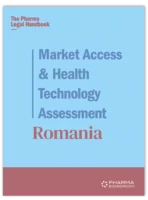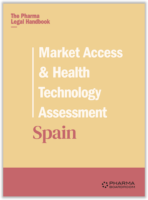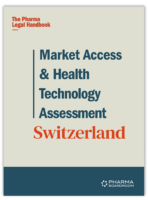Regulatory Reform: The Netherlands
Houthoff / Netherlands
1. Are there proposals for reform or significant change to the healthcare system?
Reform of the Drug Reimbursement System
The policy on medicinal products of the Ministry of Health Welfare and Sport is based on three core values: quality, accessibility and affordability. In order to improve the affordability of healthcare, the Minister proposed a reform of the Drug Reimbursement System resulting in saving € 140 million per year (see further Chapter 1, Question 13 on its general functioning). However, based on the reactions to the proposal, the Minister informed the House of Representatives on 17 May 2023 of its withdrawal of the proposal because of the potential negative impact thereof on the accessibility of medicinal products. The main criticism to the proposal is that, if manufacturers would not reduce their prices in line with the proposed lowered reimbursement limit, this would result in an additional payment for the patient or a forced switch to a different medicinal product that does fall below the reimbursement limit. Moreover, due to the interaction of the Drug Reimbursement System, the Medicine Prices Act and the preference and purchasing policies of health insurers, the proposal could have a negative impact on the security of supply of medicinal products if manufacturers would only keep the fully reimbursed products on the Dutch market.
Nevertheless, the Minister indicated to continue working on a reform of the Drug Reimbursement System other than via a reduction of the reimbursement limits and will inform the House of Representatives early 2024. Later this year, the Minister will follow up on the interim changes to ensure the functioning of the Drug Reimbursement System.
Transparency Register for Healthcare
As mentioned in Chapter 1 (see Question 1), a Healthcare Transparency Register exists and is used healthcare providers and industry to disclose their financial relationships. Although this central register is not strictly based on obligations of binding law, it gives effect to codes of conduct to which the industry generally is part of.
In March 2020, a legislative proposal to lay down in law a Transparency Register for Healthcare was submitted to the House of Representatives (Tweede Kamer). This register would be introduced by amending the Medicines Act, the Medical Devices Act and the Individual Healthcare Professions Act to include the existence of a mandatory public register. Every transaction between manufacturers and doctors of EUR 50 or more would have to be registered. The aim is to ensure that, in the future, patients can be assured that medicinal products or devices are prescribed because they are the best medical/treatment option for them at the time.
The Council of State (Raad van State) issued advice on the legislative proposal in February 2021, criticizing the proposal for not making sufficiently clear why it is necessary to make the existing Transparency Register mandatory to improve its functioning. In June 2021, the Dutch Data Protection Authority (Autoriteit Persoonsgegevens) issued advice to the House of Representatives, also criticizing the proposal. It noted that a registration in the Transparency Register is a considerable intrusion on the privacy of the individual practitioner. The Authority doubts whether the transparency of the register is necessary and whether access to the register could not be limited to the Inspectorate. The current status is that the proposal is being amended by the petitioner, following these criticisms. It is unclear when the amended proposal will be submitted to the House of Representatives for consideration.
2. When are they likely to come into force?
Please refer to Question 1 of this Chapter above.





































































